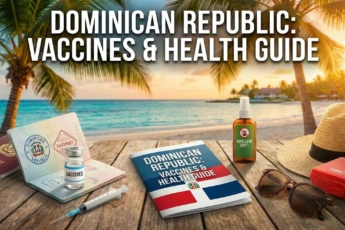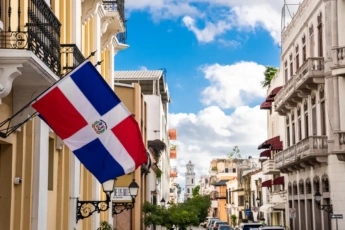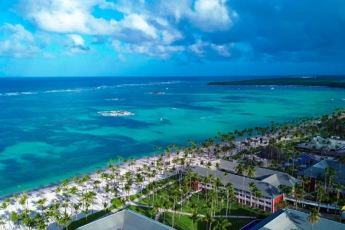Safe to Travel in the Dominican Republic - Expert Travel Advice 2026

What to Avoid When Renting an Apartment in Punta Cana in 2026
Renting an apartment in Punta Cana lets you enjoy the comforts of home while experiencing the beauty and culture of the DR. In furnished rooms and kitchens, you can relax separately or share meals with family and friends. Avoid…
Read more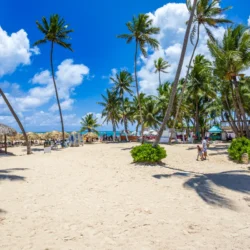
Is Punta Cana Safe in 2026? Essential Tips for Your Secure Vacation in the DR
Punta Cana, renowned for its pristine beaches and vibrant culture, has long been a popular choice for travelers seeking a tropical paradise. While safety is always a concern when traveling to a foreign country, Punta Cana is generally considered…
Read more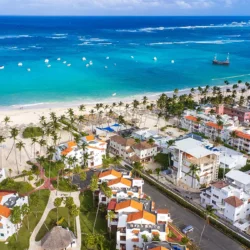
Internet in the Dominican Republic – Cheapest Prices, Fastest Providers, and Best Options in 2026
In today's world, an internet connection is just as important as breathing. Whether you're a tourist enjoying the Dominican Republic's beautiful beaches or a remote worker, you might wonder, "How good is the internet in the DR?" And if…
Read more
Health Insurance in the Dominican Republic – Costs and the Best Healthcare Options
In this article we will provide you an information and guidance on the different types of medical insurance options and the factors you should consider when choosing a medical insurance plan before your trip to the Dominican Republic. It…
Read more
Mosquitoes in the Dominican Republic – Best repellents 2026, mosquito season, and how to avoid diseases
Should we beware of mosquitoes in the Dominican Republic, where and when they are more common, how to avoid the effects of mosquito bites, and what is the first aid for bites? We will describe in the article some…
Read more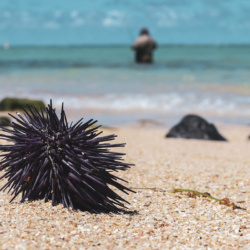
Are there any dangerous animals in the Dominican Republic in 2026?
You have decided to get away from the daily routine, gather your thoughts, swim in the ocean, soak up the sunshine, and choose the Dominican Republic for a vacation. It is a country with a tropical climate. Thereby you…
Read more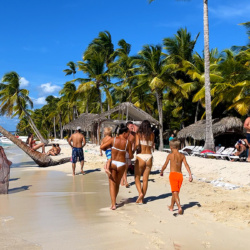
Punta Cana Travel Restrictions Lifted! – Current Situation in the Dominican Republic 2026
Nowadays, due to quarantine restrictions, the tourism sector is suffering. The Caribbean is no exception. And the fact that 2021 was the best year economically for the Dominican Republic is unbelievable. Moreover, December of the same year was the…
Read more
What is the current situation in the Dominican Republic in 2026
In modern realities, we are already accustomed to the fact that we are largely limited due to the situation with COVID-19. It is not at all surprising that often because of this, flights are canceled, or people themselves cancel…
Read more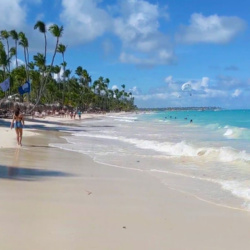
Things to do in Punta Cana – Availability and restrictions during COVID-19 in 2026
With the advent of the pandemic in our lives, no doubt, a lot has changed. In addition, now we are deprived of many joys that were previously commonplace for us. So, now there are limited choices, such as where…
Read more
PCR Test for Travel – Do I Need to Take a COVID-19 Test in the Dominican Republic?
PCR test is a diagnosis of coronavirus infection. It is highly sensitive even at the earliest stages of the infectious process, even before the onset of symptoms of the disease. Most test systems have a high sensitivity, but it…
Read more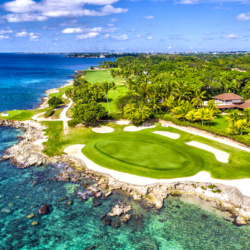
Safest Caribbean Islands to Visit in 2026 – What is The Best One?
For beach lovers, the islands of the Caribbean are particularly attractive and are on the wish list as countries they must visit, but they probably are concerned about which ones are the safest ones. This is probably because they…
Read more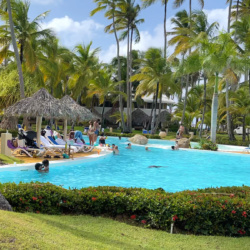
Dominican Republic Curfew End Date – What is the current situation in the DR in August 2021?
Well, we have all been waiting for this for so long, and finally, it happened. Our team is incredibly pleased to inform you that August 9, 2021, - it is the official curfew end date, and from this date…
Read moreSafety to Travel to the Dominican Republic – Essential Tips for a Secure Vacation
The Dominican Republic, a gem of the Caribbean, is renowned for its sun-drenched beaches, lively culture, and welcoming locals. However, it comes with unique challenges and considerations like any journey destination. From health precautions to understanding local risks, this guide provides comprehensive tips for security, safety, and stress-free travel to the Dominican Republic.
Why consider safety if you travel to the Dominican Republic?
Ensuring your safety doesn’t mean you should feel overly cautious or worried but rather prepared. Being informed about potential risks and equipped with practical safety tips lets you focus entirely on enjoying the breathtaking scenery and vibrant culture. Here’s why it matters:
- Health and wellness. Avoid illnesses and stay healthy by taking precautions against common risks like sunburn, mosquito-borne diseases, and dehydration.
- Natural disasters. Be prepared for hurricane season by choosing safe accommodations and staying informed about weather conditions.
- Local wildlife. Respect nature and stay cautious of potentially harmful creatures to ensure a safe outdoor experience.
- Emergency preparedness. Know what to do and who to contact in case of unforeseen events.
Planning ahead with these considerations ensures a smooth and enjoyable vacation in the Dominican Republic.
Health safety tips for travelers
Taking care of your health while journeying is crucial. Here’s a detailed look at some of the safety measures if you want to travel to the Dominican Republic:
- Mosquito prevention. Use insect repellents with DEET, wear long-sleeved clothing during peak mosquito hours, and sleep in screened or air-conditioned rooms.
- Water safety. Always drink bottled water and avoid ice cubes made from tap water. Brush your teeth with bottled water to avoid stomach issues.
- Vaccinations. Check with your doctor about recommended vaccines, such as Hepatitis A, Typhoid, and Tetanus.
- Travel insurance. Purchase comprehensive travel insurance that covers health emergencies, including hospital stays and evacuation.
Health tips when traveling to the DR
| Health tip | Details | Benefits |
|---|---|---|
| Mosquito protection | Use DEET-based repellents and mosquito nets. | Protects against mosquito-borne diseases like dengue and chikungunya. |
| Bottled water | Ensure the seal is intact before drinking. | Prevents waterborne illnesses like diarrhea. |
| Vaccinations | Consult your doctor before travel. | Boosts immunity against common travel-related diseases. |
| Sun protection | Wear sunscreen with at least SPF30 and hats, and stay hydrated. | Protects against sunburn and reduces skin cancer risk. |
Traveling during hurricane season
The Dominican Republic’s hurricane season runs from June to November. Here’s how to stay safe:
- Choose accommodations wisely. Book hotels or villas equipped with hurricane safety measures, such as storm shutters and emergency protocols.
- Monitor weather updates. Use reliable sources, like weather apps and local news, to stay informed.
- Pack essentials. Include a flashlight, extra batteries, a first-aid kit, and non-perishable food in case of an emergency.
Advice for vacations during hurricane season
| Preparation tip | Details | Why it’s important |
|---|---|---|
| Book safe accommodations | Choose properties with emergency plans and safety measures. | Ensures protection during storms. |
| Stay informed | Use weather apps like AccuWeather or Weather Channel. | Provides up-to-date hurricane tracking. |
| Pack essentials | Include items like first-aid kits and flashlights. | Prepares you for power outages or emergencies. |
In September 2022, Hurricane Fiona impacted parts of the Dominican Republic. Tourists staying in well-prepared resorts experienced minimal disruptions compared to those in less secure accommodations. Proper planning makes all the difference.
Jet lag and travel fatigue
Jet lag can affect your vacation experience. Minimize its impact with these tips:
- Adjust your schedule. Gradually shift your sleep and meal times to match your destination's time zone before departure.
- Stay hydrated. Drink plenty of water and avoid alcohol and caffeine during your flight.
- Get sunlight. Spend time outdoors upon arrival to help reset your body clock.
Simple adjustments can help you overcome jet lag quickly, allowing you to fully enjoy your time in the Dominican Republic.
Understanding local wildlife
The Dominican Republic is home to unique wildlife, but it’s essential to stay cautious for your complete safety during the travel. Here’s what you need to know:
- Marine life. Avoid touching jellyfish or sea urchins, and always wear water shoes when exploring coral reefs.
- Insects. Use mosquito repellent and avoid areas with stagnant water.
- Wild animals. Respect nature and avoid feeding or approaching wild animals.
List of dangerous fauna in the DR
| Animal | Potential risk | Precaution |
|---|---|---|
| Jellyfish | Stings can cause irritation or allergic reactions. | Avoid swimming in areas with warning signs. |
| Sea urchins | Spines can puncture the skin. | Wear water shoes in rocky areas. |
| Mosquitoes | May transmit dengue or chikungunya. | Apply insect repellent and use nets at night. |
| Wild dogs | May carry rabies. | Avoid approaching stray animals. |
Being mindful of local wildlife ensures a safe and pleasant experience while exploring the Dominican Republic’s natural beauty.
Practical tips for a safe and enjoyable trip
Follow these additional tips for a stress-free vacation:
- Secure your belongings. Use hotel safes for valuables and avoid displaying expensive items in public.
- Use reputable transportation. Choose licensed taxis or reputable car rental services for safe travel.
- Know emergency contacts. Keep a list of local emergency numbers and the nearest hospital or clinic.
Practical measures enhance your peace of mind and allow you to focus on enjoying your Dominican adventure.
Key takeaways
The Dominican Republic is a welcoming destination when travelers are informed and prepared regarding safety measures. From health precautions to understanding local risks, following these tips ensures a memorable and secure vacation.
Frequently asked questions about
safety to travel to the Dominican Republic
1. Is it still safe to travel to the Dominican Republic?
Yes, the Dominican Republic is generally safe for tourists, including popular destinations like Punta Cana, Cap Cana, and Bavaro. The government prioritizes tourism safety, with increased security in resort areas. Visitors can enjoy their vacation safely by following common precautions:
- Stick to tourist zones. Areas like Punta Cana are well-guarded and cater to international travelers.
- Avoid walking alone at night. Stick to well-lit areas, especially outside resorts.
- Use reputable transportation. Book taxis or shuttles through your hotel or trusted providers.
Some risks during traveling in the Dominican Republic
| Risk level | Examples | How to mitigate |
|---|---|---|
| Petty theft | Pickpocketing in crowded markets | Use a money belt; avoid flashy jewelry. |
| Road accidents | Poor road conditions in rural areas | Hire a driver or use hotel-arranged taxis. |
| Weather risks | Hurricane season (June-November) | Monitor forecasts; consider travel insurance. |
2. What do I need to know before going to the Dominican Republic?
Preparation is key to a safe and enjoyable trip to the Dominican Republic. Here’s what to consider:
- Recommended vaccines include Hepatitis A and Typhoid.
- Bring mosquito repellent to prevent bites and illnesses like Dengue or Zika.
- Cover medical emergencies, trip cancellations, and hurricane-related disruptions.
- The Dominican Peso is the official currency, but US Dollars are widely accepted.
- Use credit cards cautiously to avoid fraud.
- Learn basic Spanish phrases; while English is spoken in tourist areas, locals appreciate the effort.
3. Is it safe for a woman to travel to the Dominican Republic alone?
Yes, women can safely travel alone to the Dominican Republic with proper precautions. Tourist-friendly areas like Punta Cana are well-patrolled and cater to international visitors.
- Choose reputable accommodations. Resorts or hotels with positive reviews are best.
- Stay connected. Share your itinerary with family or friends and maintain communication.
- Dress modestly. While the Dominican Republic is relatively liberal, dressing modestly can help avoid unwanted attention.
- Use reliable transportation. Avoid hitchhiking or unlicensed taxis.
Women should also avoid isolated areas after dark and stick to group activities whenever possible.
4. Where is the safest place for tourists in the Dominican Republic?
Punta Cana is widely regarded as the safest destination for tourists. It features:
- Gated resorts with 24/7 security.
- Easy access to medical facilities.
- A wide range of activities, from beaches to excursions.
Other safe areas include:
- Cap Cana is a place known for luxury villas and upscale resorts.
- Casa de Campo is perfect for golf lovers and those seeking exclusivity.
- Samana Peninsula is less crowded and rich in natural beauty.
5. What is the risk in the Dominican Republic?
The Dominican Republic poses low risks for travelers who follow basic safety guidelines. However, here are some potential risks and how to handle them:
Possible risks in the Dominican Republic
| Risk type | Details | Precautions |
|---|---|---|
| Mosquito-borne illness | Dengue and Zika are present in tropical climates. | Use repellents; wear long-sleeved clothing. |
| Water safety | Ocean currents can be strong in some areas. | Swim in designated zones with lifeguards. |
| Tap water safety | Tap water isn’t safe for drinking. | Stick to bottled or filtered water. |
| Hurricane season | Risk increases from June to November. | Check forecasts; buy travel insurance. |
| Petty crime | Pickpocketing or minor scams in urban areas. | Avoid carrying large amounts of cash. |
By staying vigilant, preparing for potential hazards, and sticking to well-traveled areas, you can enjoy a worry-free vacation in the Dominican Republic.
6. What not to bring to the Dominican Republic?
When packing for your trip to the Dominican Republic, it’s essential to avoid items that could lead to inconvenience or legal trouble.
Things not to take to the Dominican Republic
| Item | Reason to avoid |
|---|---|
| Illegal substances | Strict drug laws can lead to severe penalties. |
| Expensive jewelry | Can attract unwanted attention or theft. |
| Weapons | Even items like pepper spray may require permits. |
| Large amounts of cash | Credit cards are widely accepted, and ATMs are available. |
| Unnecessary electronics | Reduces the risk of loss or damage during travel. |
Leave items like tap water filtration kits behind, as bottled water is widely available. Avoid bringing perishable foods, as they may not clear customs.
7. Is Punta Cana safe to walk around?
Yes, Punta Cana is generally safe to walk around, especially within resort areas and well-lit public spaces. However, keep these tips in mind:
- It’s safer to walk around during the day when visibility is better and there’s more foot traffic.
- Popular spots like Bávaro Beach and resort zones are well-guarded.
- Avoid walking alone at night and stick to resort perimeters.
- For longer distances, use taxis or hotel-arranged transport instead of walking.
8. Can you brush your teeth with tap water in the Dominican Republic?
In the Dominican Republic, brushing your teeth with tap water is not recommended. Although tap water is chlorinated, it may still carry impurities or bacteria unfamiliar to your system. Instead:
- Use bottled water for brushing your teeth.
- Ensure the water bottle is sealed before use.
9. Is it safe to shower in the Dominican Republic?
Yes, it is safe to shower in the Dominican Republic. The water used for bathing poses no risk to your skin. However, here are some points to consider:
- Avoid swallowing the water while showering.
- For sensitive skin, consider bringing a gentle soap or body wash.
10. Is it safe to go to Punta Cana alone?
Yes, Punta Cana is safe for solo travelers. Its popularity among international tourists has led to strong security measures in resorts and public areas.
Tips for solo travelers:
- Stay in reputable accommodations. Gated resorts offer additional safety and convenience.
- Avoid isolated areas. Stick to tourist zones and popular beaches.
- Meet other travelers. Join group tours or activities to connect with others.
- Stay alert. Be mindful of your belongings, especially in crowded places.
11. Is Puerto Plata safe?
Yes, Puerto Plata is considered a safe destination for travelers, especially in areas like Playa Dorada and Sosúa, which are well-patrolled and cater to tourists.
Safety points in Playa Dorada
| Safety aspect | Details | Tips |
|---|---|---|
| Resort areas | High security ensures a safe environment. | Stay within resort zones for added comfort. |
| Urban safety | The city center is generally safe during the day. | Avoid walking alone at night. |
| Beaches | Lifeguarded beaches offer safe swimming zones. | Follow posted warnings and local advice. |
12. Can you kiss in the Dominican Republic?
Yes, kissing in the Dominican Republic is perfectly acceptable in public, especially among couples. However, public displays of affection (PDA) are generally moderate in the country.
- Light PDA, such as kissing or holding hands, is common and widely accepted.
- In smaller towns, it’s best to remain discreet as customs might be more conservative.
13. Is it safe to leave hotel in the Dominican Republic?
Yes, it is generally safe to leave your hotel, especially in well-known tourist zones such as Punta Cana or Puerto Plata. Here are some tips to ensure your safety:
- Popular beaches, shopping centers, and cultural attractions are safe and well-patrolled.
- Solo travel is safe but traveling with others can provide an extra layer of security.
- Remote areas might lack security and emergency services.
- Ask your hotel staff for recommendations on safe places to visit.
14. Is it safe to swim in the sea in the Dominican Republic?
Yes, swimming in the sea is safe in most areas of the Dominican Republic, but some precautions are necessary:
Factors to consider when swimming in the sea in the DR
| Factor | Details | Tips |
|---|---|---|
| Beach conditions | Many beaches, like Bávaro and Bayahibe, have calm, clear waters suitable for swimming. | Check for lifeguards and flag warnings. |
| Strong currents | Certain beaches, particularly on the Atlantic coast, can have strong rip currents. | Avoid swimming in unmarked or rough waters. |
| Marine life | Jellyfish or sea urchins may occasionally be present. | Wear water shoes and remain alert for warnings. |
| Hygiene | Popular tourist beaches are well-maintained and safe. | Choose beaches with regular cleaning services to avoid debris. |
15. What problems does the Dominican Republic have?
While the Dominican Republic is a popular tourist destination, it does face some challenges:
- Poverty. A significant portion of the population lives below the poverty line, which can lead to inequality.
- Infrastructure. Some rural areas have underdeveloped infrastructure, including roads and healthcare facilities.
- Crime rates. Petty crimes like pickpocketing occur in crowded areas; however, violent crime against tourists is rare.
- Environmental concerns. Issues such as deforestation, seaweed accumulation, and pollution affect certain regions.
- Hurricane season. Tropical storms from June to November can disrupt travel plans.
16. Is the Dominican Republic safer than Mexico?
The Dominican Republic is often considered safer for tourists than Mexico, especially in terms of organized crime and drug violence.
Safety in the Dominican Republic vs Mexico
| Safety aspect | Dominican Republic | Mexico |
|---|---|---|
| Tourist zones | Well-guarded and secure in Punta Cana, Bávaro, and Cap Cana. | Safety varies; tourist hubs like Cancun are well-patrolled. |
| Crime rates | Mostly petty theft in crowded areas. | Some regions experience higher rates of violent crime. |
| Health risks | Similar risks, such as mosquito-borne illnesses like dengue. | Similar, though access to quality healthcare can vary. |
| Weather concerns | Hurricanes can affect travel. | Hurricanes and localized flooding are also concerns. |
For both destinations, exercising caution, avoiding unsafe areas, and adhering to local advice ensures a safe and enjoyable trip.

